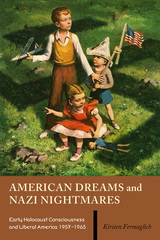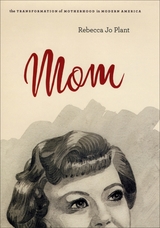

“It changed my life.” That’s what Betty Friedan heard over and over from women throughout the United States after the publication of her radical best-seller, The Feminine Mystique, sparked the beginning of contemporary feminism. The first stirring and uncertain years of the women’s movement helped many women put a name to the sense of invisibility, powerlessness, and depression that Friedan famously called “the problem that has no name.”
First published in 1976, “It Changed My Life” is a compellingly readable collection of reports from the front, back in the days less than a generation ago when women were routinely shut out of the professions and higher education, underpaid, condescended to, and harassed without consequences to the harassers. The book describes the political campaigns for equal pay and job opportunities, for the outlawing of sex discrimination, for the Equal Rights Amendment, and for legalized abortion, the creation of National Organization for Women, the National Abortion Rights Action League, and the National Women’s Political Caucus, and analyzes the antifeminist backlashes. Encounters with Simone de Beauvoir and Indira Gandhi are juxtaposed with moving and vivid personal struggles of many ordinary women. Among those women was Friedan herself, who frankly recorded her astonishment, gratification, and anger as the movement she helped create grew beyond all her hopes, and then raced beyond her control into a sexual politics she found disturbing.
A classic of modern feminism, “It Changed My Life” brings back years of struggle for those who were there, and recreates the past for the readers of today who were not yet born during these struggles for the opportunities and respect to which women can now feel entitled. In changing women’s lives, the women’s movement has changed everything.


First published in 1981, The Second Stage is eerily prescient and timely, a reminder that much of what is called new thinking in feminism has been eloquently observed and argued before. Warning the women's movement against dissolving into factionalism, male-bashing, and preoccupation with sexual and identity politics rather than bottom-line political and economic inequalities, Friedan argues that once past the initial phases of describing and working against political and economic injustices, the women's movement should focus on working with men to remake private and public arrangements that work against full lives with children for women and men both. Friedan's agenda to preserve families is far more radical than it appears, for she argues that a truly equitable preservation of marriage and family may require a reorganization of many aspects of conventional middle-class life, from the greater use of flex time and job-sharing, to company-sponsored daycare, to new home designs to permit communal housekeeping and cooking arrangements.
Called "utopian" fifteen years ago, when it seemed unbelievable that women had enough power in the workplace to make effective demands, or that men would join them, some of these visions are slowly but steadily coming to pass even now. The problem Friedan identifies is as real now as it was years ago: "how to live the equality we fought for," and continue to fight for, with "the family as new feminist frontier." She writes not only for women's liberation but for human liberation.
READERS
Browse our collection.
PUBLISHERS
See BiblioVault's publisher services.
STUDENT SERVICES
Files for college accessibility offices.
UChicago Accessibility Resources
home | accessibility | search | about | contact us
BiblioVault ® 2001 - 2024
The University of Chicago Press









